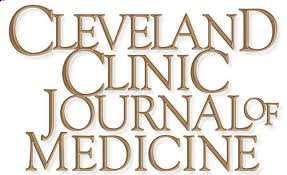The editor of the Cleveland Clinic Journal of Medicine discusses the importance of early diagnosis in acute and chronic mesenteric ischemia, emphasizing the challenges faced by clinicians due to the often vague and non-specific symptoms. Dr. Brian F. Mandell highlights the historical significance of Sir Vincent Zachary Cope’s book, Early Diagnosis of the Acute Abdomen, and its continued relevance in modern clinical practice.
Key Points:
- Sir Vincent Zachary Cope’s Early Diagnosis of the Acute Abdomen has been a seminal text since 1921, emphasizing the importance of clinical acumen in diagnosing abdominal conditions.
- Acute mesenteric ischemia often presents with severe pain disproportionate to physical findings, making early diagnosis difficult, particularly in patients with atherosclerotic cardiovascular disease.
- High clinical suspicion is crucial for diagnosing mesenteric ischemia, especially in patients with atypical presentations or those labeled as exhibiting “drug-seeking behavior.”
- Chronic mesenteric ischemia can progress insidiously, with symptoms like postprandial abdominal pain and weight loss, often due to atherosclerosis in older patients or systemic inflammatory vascular diseases in younger patients.
- Early vascular imaging is essential for timely diagnosis and management of mesenteric ischemia, given the often vague and non-specific symptoms.
- Physicians must maintain a high index of suspicion and consider mesenteric ischemia in patients with unexplained abdominal pain, ensuring prompt imaging and intervention to prevent severe outcomes.

Acute mesenteric ischemia accounts for approximately one in 1,000 hospital admissions. The mortality rate is 50%–69% owing to the absence of specific symptoms and laboratory data, which makes early detection of this condition difficult. (RadioGraphics 2018)
More in Gastroenterology
 PATIENT EDUCATION
PATIENT EDUCATION  OBESITY/WEIGHT MANAGEMENT
OBESITY/WEIGHT MANAGEMENT  EXERCISE/TRAINING
EXERCISE/TRAINING  LEGAL MATTERS
LEGAL MATTERS  GUIDELINES/RECOMMENDATIONS
GUIDELINES/RECOMMENDATIONS 